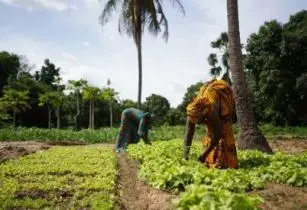The United Nations World Food Programme (WFP) has welcomed a consignment of fortified vegetable oil worth US$1mn from the Russian Federation in support of its resilience building activities in the drought-stricken arid counties of Kenya
This contribution will form part of the in-kind food package that WFP is distributing in this year’s lean season, when farming families typically face hunger. WFP distributes cereals, pulses, and fortified vegetable oil to vulnerable Kenyans while at the same time treating malnutrition in mothers by providing nutritious flour for porridge and peanut-based supplement for children under five-years-age.
“This contribution is very timely for Kenyan families grappling with acute food shortages in a country facing the prospect of a third successive failed rainy season. This year, because of the drought, we are providing support to families in our resilience programme for 10 months, instead of eight,” said Lauren Landis, WFP’s Kenya country director. “At the same time, we are supporting them to adopt new farming practices, nutritious and drought-resistant crops that help them to achieve a more sustainable future. This contribution from the Russian Federation is an important component of that package.”
Russia has a long history of supporting WFP in east Africa, having donated Kamaz trucks to support WFP’s logistics operations in 2019 and 2014, as well as strategic contributions to WFP’s work in Kenya.
WFP distributes cash and food to 390,000 people across nine arid counties that are also engaged in resilience building activities through livelihood diversification such as beekeeping, sweet potatoes and tomatoes, improved climate adaptation with the construction of water harvesting structures and strengthened financial inclusion through access to micro-insurance and community savings groups.
The lean season is one of the most trying periods for farming families especially in the marginal areas. It is when most families run out of crop stockpiles and before the arrival of the next season’s harvest.





